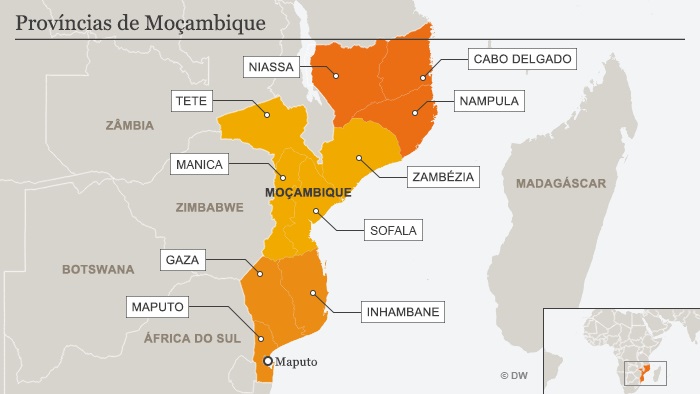Mozambique: Anamola calls for separation of political parties from electoral bodies
Mozambique: Teodoro Waty distrusts decentralisation, expects to see problems from 2014 – A Verdade

Image: DW
Mozambican jurisprudence expert and former Assembly of the Republic deputy Teodoro Waty believes that decentralisation is beneficial to the country, even though it has been postponed for several decades. However, he foresees some problems arising from the implementation of the process in the next five. “The so-called decentralised governance bodies, formerly owned by the state and municipalities,” will in time realise that they are only decorative, he says.
“By 2024, provincial decentralised governance bodies (provincial executive councils and governors) will realise that they have neither the territory nor the population and that they do not have authority over district administrators who will be bound by programmes voted by their constituents,” the lawyer and university professor says.
Moreover, in 2024, the country will only have three decentralised territorial levels, namely municipalities, districts and provinces, which will require a new form of democracy, the “ability and tact to manage dialogue and tolerance, not as a favour to others” but rather as an imperative of political survival.
Provincial governors and district administrators must realise that they will have a “hand full of no real power” and that the councils they will address are no longer the previous governments, which functioned as support and consultation bodies.
Teodoro Waty’s views were presented this Monday in Maputo by his representative, Alcides Nobela, at an event organised by the Electoral Institute for Sustainable Democracy in Africa (EISA), on “Principles for the Regulation of new Model of Decentralisation in Mozambique: A Contribution”.
For the former deputy, the Secretary of State and his/her Provincial Secretariat, as set out in the draft law on decentralisation, “are an illusion or a scarecrow of the state, a very dangerous situation given its multiple and complex administrative and political responsibilities”.
The state must organise itself to ensure its coordinating function so that local interests and plans do not move away from national perspectives, and “do not allow political power to confiscate the autonomy of communities and to orient themselves to autocratic forms”.
Waty further understands that “decentralisation cannot translate the incubation of a will to affirm ethnic identity”.
Waty suggests that, in the management of public affairs, “the local and the national coexist with the balances of democracy and freedom, participation and autonomy, leaving change and the hope of change intact”.
Additionally, creating the instruments and regulatory mechanisms that allow an equitable distribution of goods throughout the population and contain any conflicts that may tend arise is a pressing imperative, Waty notes.
Decentralisation is not necessarily democratic, he points out. Measures are therefore required so that, in territories where decentralisation is implemented, “the expression of local and national respects the social contract theory and the majority power, where it is not enough [to hold] fair, transparent and periodic elections, but where the democratic and free will of the citizens is expressed”.
By Emído Sambo












Leave a Reply
Be the First to Comment!
You must be logged in to post a comment.
You must be logged in to post a comment.